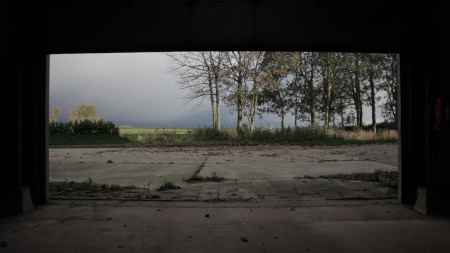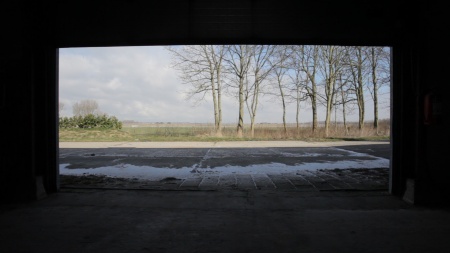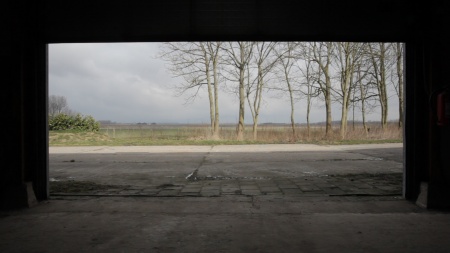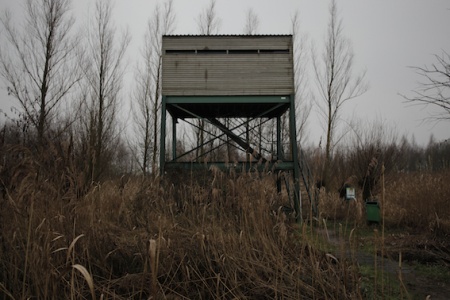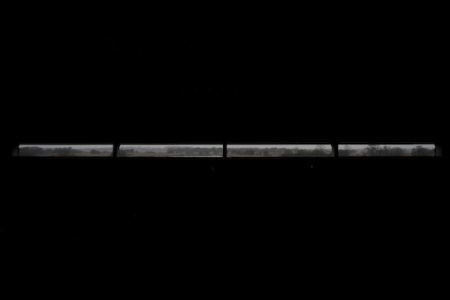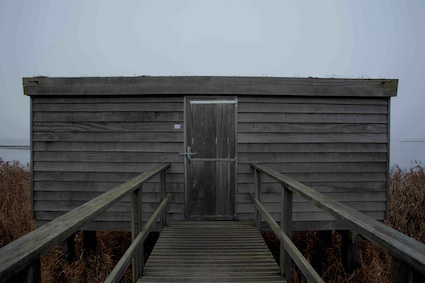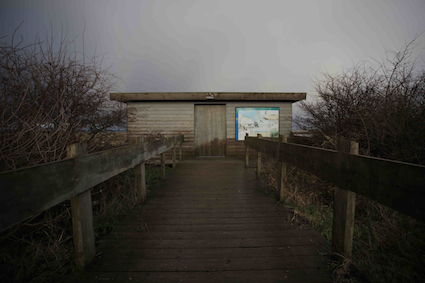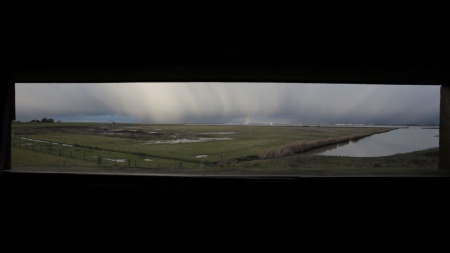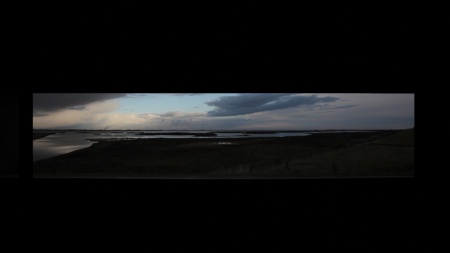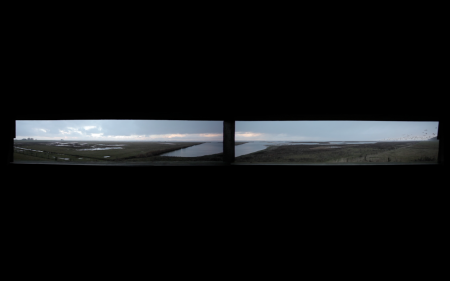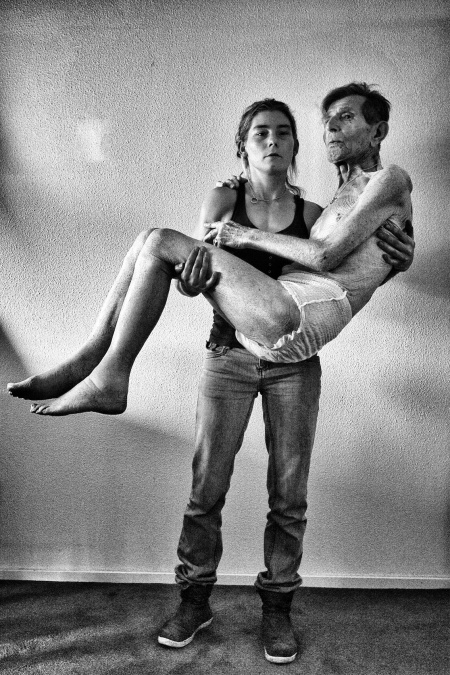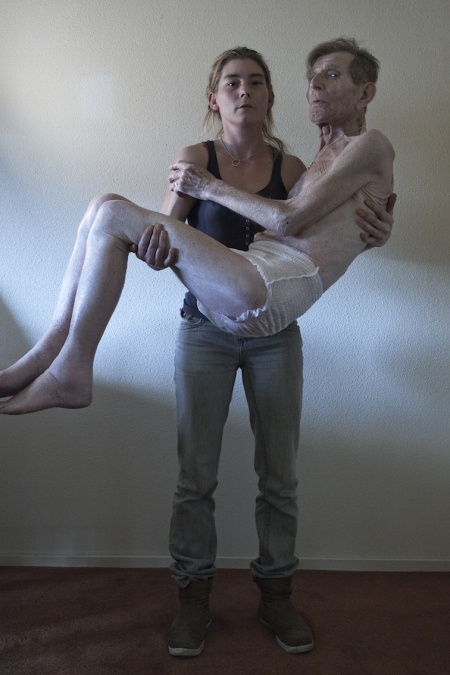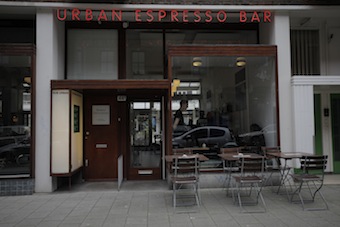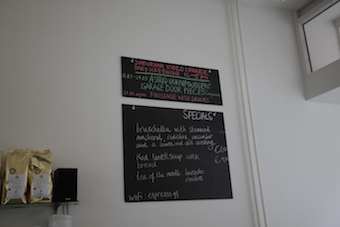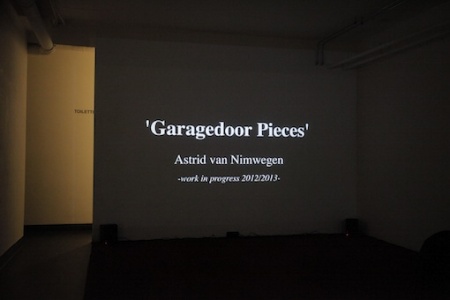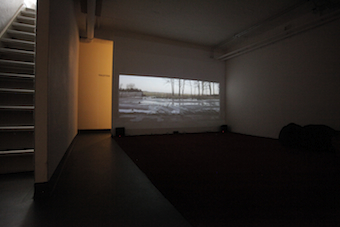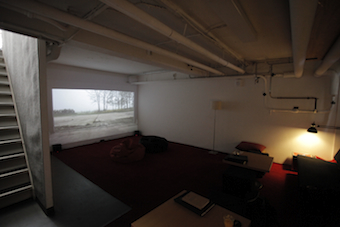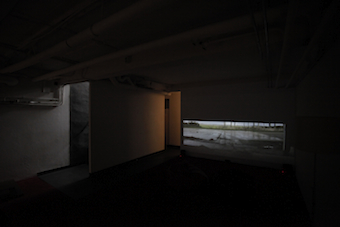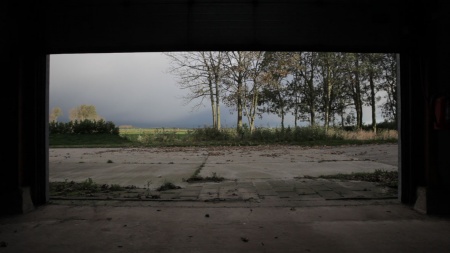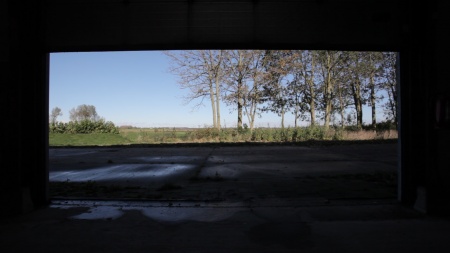Astridvan Nimwegen trimester5 2nd year: Difference between revisions
(→Media) |
|||
| Line 68: | Line 68: | ||
In the serie you are starting to search for differences and compare one door to the other, almost starts to become a playgame 'spot the differences'. This is how I experienced the work in the exhibition in the videolounge and what I can conclude from other people who watched the work (only they experienced this changing in season as positive and interesting). | In the serie you are starting to search for differences and compare one door to the other, almost starts to become a playgame 'spot the differences'. This is how I experienced the work in the exhibition in the videolounge and what I can conclude from other people who watched the work (only they experienced this changing in season as positive and interesting). | ||
''To give the muteness within the videowork more space it would be good to have: | ''To give the muteness within the videowork more space it would be good to have:<br> | ||
1: A life size projection | 1: A life size projection<br> | ||
2: Better quality/sharpness (use original filesize/HD resolution) | 2: Better quality/sharpness (use original filesize/HD resolution)<br> | ||
3: Screen only one Garagedoor (or 3 or 4 but then in a sequence based on something else then changing of seasons, for example select them on movement or intensity of the light / contrast) | 3: Screen only one Garagedoor (or 3 or 4 but then in a sequence based on something else then changing of seasons, for example select them on movement or intensity of the light / contrast)<br> | ||
| Line 116: | Line 116: | ||
(a 20mm as well but the difference isn't that huge as with 17mm) | (a 20mm as well but the difference isn't that huge as with 17mm) | ||
Videos shot with 17mm will be lenscorrected. First I want to see the result and decide if this is better/necessary for the final outcome. Since the frame is a very important parameter in the videos, I imagine that lenscorrecting them will be more convincing. | Videos shot with 17mm will be lenscorrected. First I want to see the result and decide if this is better/necessary for the final outcome. Since the frame is a very important parameter in the videos, I imagine that lenscorrecting them will be more convincing. | ||
=== Process Birdspotting houses === | === Process Birdspotting houses === | ||
Revision as of 01:03, 25 March 2013
Graduation work / progress trim 5
Description
What I did in trim 5:
Workshops / masterclasses
-Sound workshop Larry Sider SOS
-Michael Snow at iffr (screening + artist interview - which I recorded with Leslie)
-Masterclass on 'Time' with Ben Russel iffr --> made me conscious again on the importance of Time within my work!
-Masterclass with Tony Conrad at Sonic Act Festival A'dam (on sound and videowork he made)
-Workshop with Makino in Worm --> making analogue film by hand and convert and edit digital to generate a 3D - effect in layers
My own research last months / currently:
-Shot more garagedoors
-Refining garagedoor pieces technically
-Researching on sound (see below - 'Research and importance of Sound/Audio')
-Observing and questioning the work in different contexts - videolounge / filmtheater (hopefully in SMART next month)
-Shot footage in birdspotting house near Belgium
-Made a series of Garagedoor-pieces - differs from only one garagedoor video because in the serie it's more about the process of changing in seasons
-Shot and edited a photograph of me and my grandfather (difference in black&white / color
-Practicing my editing skills in photoshop and premiere
-Shot Polaroids - which made me wonder if I really need this as part of my thesis
-Write about practice and describe outcomes (thesis)
Research on my position to Art-History (thesis)
-Reading texts -'Letters to a young Poet' by Rainer Maria Rilke / 'The Everyday' by Stephen Johnstone
-Watching a lot of interviews/documentaries (TJ Clark)/Films
-Applied for a residency in CovePark - Scotland in Januari and created a showreel (but I was rejected):
Dear Astrid
Thank you for your application to Cove Park’s 2013 visual arts residency programme.
I’m afraid your application was not shortlisted for interview this time. We received a large number of applications this year (approximately 280) and can offer just four residencies in this current round. I do appreciate the time applications take and the selection panel would like to thank you for your submission – everyone was very interested in your work.
I am sorry to write with disappointing news, but hope you will keep in touch with Cove Park and please visit if you can this summer.
With best wishes Alexia Holt
Media
Process Garagedoors
Difference between multiple Garagedoors in a series and seen one on its own:
The serie in itself becomes too important and the 'time' is very much about the changing of seasons whilst for me it is more to do about the time within these 2.30 minutes single door shots. Here the attention to every element is stronger, it is more about stillness or muteness in the image.
In the serie you are starting to search for differences and compare one door to the other, almost starts to become a playgame 'spot the differences'. This is how I experienced the work in the exhibition in the videolounge and what I can conclude from other people who watched the work (only they experienced this changing in season as positive and interesting).
To give the muteness within the videowork more space it would be good to have:
1: A life size projection
2: Better quality/sharpness (use original filesize/HD resolution)
3: Screen only one Garagedoor (or 3 or 4 but then in a sequence based on something else then changing of seasons, for example select them on movement or intensity of the light / contrast)
Research on difference between 17mm lens and a 20mm lens
Still 17mm lens
This is a still from a garagedoor video shot with a 17mm lens, the disadvantage is that the lens gives distortion in the image and needs to lens-correction in the post-production.
Still 20mm lens
This is a still from a garagedoor video shot with a 20mm lens, I placed the tripod on a bigger distance to the door so I had more or less the same frame as with the 17mm when the tripod was placed closer to the door, the 20mm lens gives no big distortion and does not need lens-correction in the post-production.
Conclusion:
In my opinion the 17mm videos work better. The viewing angle is bigger and the image looks more surreal in this wider shot.
There is more 'distance' between image and viewer because 17mm decrease the landscape-view: it seems further away.
Maybe the 17mm works also better because the angle on reality differs quite much from our own purview.
(a 20mm as well but the difference isn't that huge as with 17mm)
Videos shot with 17mm will be lenscorrected. First I want to see the result and decide if this is better/necessary for the final outcome. Since the frame is a very important parameter in the videos, I imagine that lenscorrecting them will be more convincing.
Process Birdspotting houses
Birdspottinghouse in Valkenswaard
This is a birdspotting House which I visited in Valkenswaard, close to the border with Belgium. In comparison with the birdhouses I visited earlier on the island where I live, I did not find the strong connection with the landscape in Valkenswaard. I can conclude that the specific nature on the island where I live is of high importance, as well as the water surrounding it.
Birdspottinghouses and viewings on the island Goeree Overflakkee where I live:
I am not sure yet how and if the birdhouse-footage will be present in the graduation show. An idea I had during last trimester was to maybe build a birdspotting-house myself and project the videos I collected of the viewings onto the outside of the windows so when you stand inside the wooden cabin, you would see the view on the windows. Isolation is a recurring, important element in all of my work. To create such an isolated place where the viewer can literally step in can be a way to give an isolated experience. I am not convinced if this is a successful idea but I know that the only way to figure it out will be to just build it (if I have spare time for it) How I would present the viewings otherwise I do not know at this very moment. It is certainly a fruitfull project to continue working on. When the weather is warmer I will stay a couple of days in one of the existing birdhouses to record sound and video and also to write on my experience in this place.
Next to that I also have images in mind which can form a short narrative film about somebody living in a birdspotting house. But this is probably something for on the long term after graduation.
In this edit I put two viewings into one screen I am experimenting on different ways I could possible edit and show the work. This is a process still in progress at the moment.
Process Photograph 'Grandpa'
I made different edits of this picture and decided that the color-version is better because it already has drama in its content. The black/white grainy version dramatizes the action too much by how it's edited. This is not necessary to do and becomes more a sort of trick.
For presenting this photograph I consider to make a lightbox or place light behind it in some way (not clear HOW it will be the best yet). I printed a proof on sticker-material, based on a final life size print (183 x 122) After discussing this print and try-outs with light behind it I will conclude how I will present it.(discuss with Hans Wilschut and Frits!) With exhibiting the photo, it has to be in a different room then my videowork I think. Funny to notice that again every choice is an important one that needs carefull consideration. When the image is stuck onto a plastic plate it is already different then when it is sticked onto glass; this latter material is purer, natural and fragile and reinforces the image. It might seem to be an obvious choice (and it is exactly this OBVIOUSNESS I am looking for!) for me it is a subtle difference I discovered when I choose the material and it adds an extra layer, and thus gives a reason for going with such a decision. (less is more so every extra element needs contemplation)
After discussing this photograph I was asked multiple times how this photo would relate to my videowork. I am not sure if this is a relevant question... It is indeed a different form but expresses the same sort of content that is also in the videoworks: Same sort of Purity within living and everydayness which becomes alienated and 'sublime'. So it is still a way to capture the sublime within everyday/commonplace. It is also a picture that only I was able to take. Time is again present and of great importance but in a different manner - I am aware of that (tutorial Hans Wilschut)
When I speak of muteness or stillness in my videos, I think this is found back in the photograph as well.
Video
Showreel for Covepark residency (watch on youtube because I still don't know how to make 16:9 aspect ratio thumbnail on wiki!)
{{#ev:youtube|dDXF8a6oqXw?version=3&autohide=1&showinfo=0 | 720 }}
[1]
Descriptions of video works in the showreel:
‘The Gravediggers’ 2010 The film is a short black and white registration of a naked women standing in white underpants in the middle of a farming field, she is staring in the distance. Four gravediggers are digging a large circle around the women in the field. The only sound you hear is the sound of the digging and the sound of birds in the environment. --Duration 15 minutes—
‘A Man Digging’ 2012 An over weighted man is digging a grave in the middle of a field of wheat, naked, only wearing white underpants. --Duration 2.30 minutes—
‘Human constraints factory’ 2012 A series of videos in which a set of parameters is used as the formal structure beneath the video works that allows you to create videos of which you cannot predict the outcome. In ‘Human constraints factory #6’ a one legged man and a woman with a walker are displayed in a field with several white circular signs. They walk together from one spot to the next. The shot is literally ‘framed’ with white lines painted on the ground. The characters are clearly following stage directions but it remains unclear what those directions are about. Originally, next to the videos, a rulebook is presented in which you can read the ‘script’ of the pieces.
‘Horses with Birds’ 2012 Black birds and a horse with a jacket on are captured as if they are on stage; following stage directions. --Duration 1.15 minutes slow motion--
‘Garagedoor pieces’ 2012 (ongoing series) Every week I record the same shot of a garage door. The video begins with the garage door closed; then the door opens as if the curtains of a stage open. A colourful landscape becomes visible. The atmosphere is quite melancholic and isolated, as if the drama already is there within the staging itself. The duration of the shot ensures that each element in the frame is given attention. A single leave blows away; the trees move slowly in the wind; the treetops in the distance are covered with morning sunlight. Then the door closes again after two minutes. On one day we see it raining, another day it is dry but windy, sometimes a dog walks by. --Duration 2.30 minutes/Work in progress—
‘Vertical Slice of Landscape’ 2012 A flock of loud chattering geese fly over in a deserted landscape seen from out of two garage doors that reveal only a vertical slice of the landscape. --Duration 2.30 minutes Black & White—
‘Bird-spotting houses’ 2012 Currently I am researching on bird-spotting houses. I record the houses from the outside and also the viewings from out of the wooden windows that are found in the inside of the cabins. I want to bring multiple videos together in an installation or montage. --Work in progress--
Research and importance of Sound/Audio
In januari I took part in the School Of Sound workshop with Larry Sider. In this workshop I used self made recordings combined with music and sound grabbed from an online sound-databank to create a soundtrack together with Danny (alumni).
With video offcourse you have medium/close-up/wide shots. I learned that this is actually also the fact with sound. You have sound in the background/distance (environment sound) you have medium sound and close sound (dialogue for example)
For the audio of the 'Garagedoor-pieces' I tried out different recordings. Normally the sound recording device is placed in the shed; hereby the shed functions as a kind of resonance box. The sound is recorded on four channels (2x stereo sound) In one video I placed the recording device outside the shed; close to the door. Another recording was made by placing the device in the field itself.
Outcome: I made one edit in which all audio is placed underneath one video, this was a good exercise for practicing my skills on synching sound and make it lower to avoid the audio-meter in the red area (when sound is too loud) The outcome resulted in too much gain/noise in the sound and I concluded that best is to record in the shed. Now I am busy editing/sync sound underneath every video (as it was shot) to listen to the difference in these 3 soundtracks.
In my screening of the Garagedoor-pieces in the videolounge I asked for 2x stereosound in the space. One is coming from the frontspeakers (stereo) which are placed underneath the projection and one set of stereospeakers is placed in the back of the space. This results in a more spacial sound then if the sound is only coming from the back. I noticed this as well with a try-out screening I did in a small cinema; if the sound is only coming from the backspeakers, or only from the frontspeakers, the sound is not spacial enough.
Below are three different sound-recordings on the garagedoorpiece so you can hear the difference:
Soundrecorder in the field: Media:Sound.ogg
Soundrecorder just outside barn Media:Sound outside barn.ogg
Soundrecorder in barn Media:Sound in barn.ogg
Thesis / Graduation seminar
An idea I have now for my thesis is to describe every Garagedoor-video I collected so far (discuss further with Steve first) For this I want to read TJ Clarks book ‘The sight of death’ (for this book TJ Clark, an art-historian and writer, made three months long everyday descriptions of two paintings from Poussin; ‘Landscape with a calm’ and ‘Landscape with a man killed by a snake’) David recommended me this book-
Exhibition in the Sub Urban Videolounge - Rotterdam
Documentation exhibition
11.03.2013 -24.03.2013
ASTRID VAN NIMWEGEN : GARAGE DOOR PIECES
Living in the middle of the farming fields, Astrid is strongly connected with and inspired by the landscape and the ever changing weather of the Dutch south-west. At the same time she travels – literally and figuratively. It is as if these oppositions are reflected in her work: passionately connected to video, her work is an ongoing search for balance between minimalism, conceptualism, theatricality, the language of cinema and ritualistic forms of storytelling. Garage Doors as presented in Sub urban video lounge is a studious collection of shots, where the artist´s only decisions seem to be the position of the camera, the moment of the shot and the duration of the opening of the door. By these decisions Astrid gives us the possibility to really see something, the changing of the light, the movement of the clouds, the reflections on the wet concrete floor, a leave blown by the wind... text by: Toine Horvers / Astrid van Nimwegen
Budget
Price for printing the 'grandfather-photo' as a sticker or on perspex in order to create a lightbox:
- Official document budgetproposal still needs to be uploaded!!!!

